All Stories
-
 Health & Medicine
Health & MedicineJapanese scientist wins Nobel for revealing secrets of cellular recycling
Discovering how cells act as mini recycling plants wins the Nobel Prize in physiology or medicine for Japanese cell biologist Yoshinori Ohsumi.
-
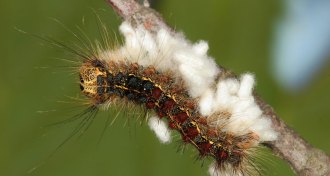 Animals
AnimalsNew book tells strange tales of evolution
'The Wasp That Brainwashed the Caterpillar' features a cadre of critters that have evolved seemingly bizarre solutions to some of life’s biggest problems.
-
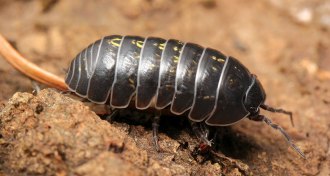 Genetics
GeneticsTo make female pill bugs, just add bacterial genes
Genes from Wolbachia bacteria infiltrated pill bugs and now make genetic males female.
By Susan Milius -
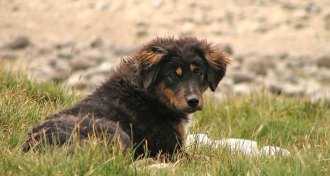 Animals
AnimalsNature has a dog problem
Free-roaming dogs spread disease, kill wildlife by the thousands and have even caused extinctions. But their full effect on the environment has been little studied.
-
 Planetary Science
Planetary ScienceRosetta spacecraft lands on comet, ends mission
The Rosetta mission comes to an end as spacecraft touches down on surface of comet 67P/ Churyumov–Gerasimenko.
-
 Planetary Science
Planetary ScienceRosetta spacecraft ends mission
The Rosetta mission comes to an end as spacecraft touches down on surface of comet 67P/ Churyumov–Gerasimenko.
-
 Cosmology
CosmologyAfter Big Bang, shock waves rocked newborn universe
Shock waves in the early universe could explain the generation of magnetic fields and the predominance of matter over antimatter.
-
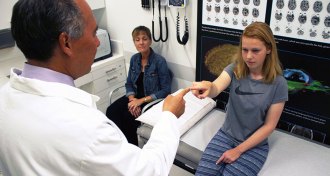 Health & Medicine
Health & MedicineDon’t cocoon a kid who has a concussion
Parents should fight the urge to limit kids’ activities after a concussion.
-
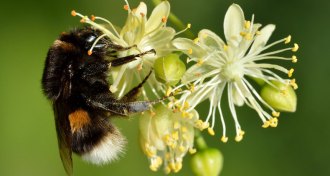 Animals
AnimalsPrimitive signs of emotions spotted in sugar-buzzed bumblebees
When bumblebees eat a sugary snack, they make more optimistic decisions, a new study finds. This could be early evidence for emotion in insects.
-
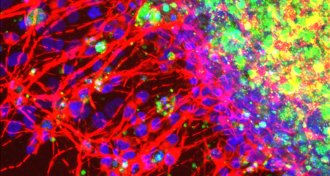 Health & Medicine
Health & MedicineZika virus infects cells that make bone, muscle in lab tests
Zika virus infects embryonic cranial cells in lab-grown minibrains, potentially altering face and skull shape and brain development, and maybe even contributing to microcephaly.
By Meghan Rosen -
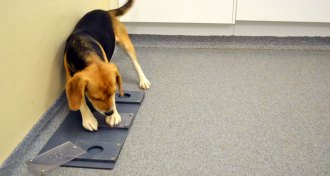 Genetics
GeneticsGene linked to autism in people may influence dog sociability
DNA variants were linked to beagles’ tendency to seek human help.
-
 Planetary Science
Planetary ScienceSo long, Rosetta: End is near for comet orbiter
During its time in orbit around comet 67P, the Rosetta spacecraft discovered diverse terrains, organic molecules and a source of water quite different from Earth’s oceans.